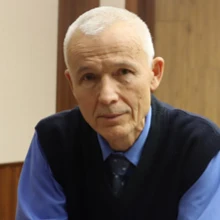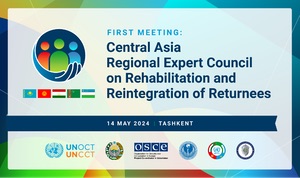A New and Technological Approach to Elections Begins  The Central Election Commission held a meeting and a series of events today, July 26th. The primary agenda item was the preparation and high-level accomplishment of the upcoming elections for the Legislative Chamber of the Oliy Majlis and the Councils of People's Deputies in full compliance with the Constitution and laws. The Central Election Commission held a meeting and a series of events today, July 26th. The primary agenda item was the preparation and high-level accomplishment of the upcoming elections for the Legislative Chamber of the Oliy Majlis and the Councils of People's Deputies in full compliance with the Constitution and laws.
According to Article 128 of the Constitution of the Republic of Uzbekistan, elections for the Legislative Chamber of the Oliy Majlis and the Councils of People's Deputies are scheduled to take place on the first Sunday of the third ten-day period of October in the year their term expires. Considering that the term of the deputies of the Legislative Chamber of the Oliy Majlis and the Councils of People's Deputies ends in 2024, the elections will be held on October 27th of this year, and the election campaign will begin on July 26th, as decided by the Central Election Commission. READ MORE
- Friday, 26 July 2024, 15:28
Uzbekistan plans to increase exports of electrical products to Europe, countries of South Asia and the Middle East  Yuri Kutbitdinov, Yuri Kutbitdinov,
chief Research Officer of the Center for Economic Research and Reforms under the Administration of the President of the
Republic of Uzbekistan
There are about a thousand manufacturing enterprises operating in the electrical engineering sector of Uzbekistan, most of them small, producing over two thousand types of products. Almost all enterprises in the industry are privately owned. The total number of people employed in the industry exceeds 35,000.
The 76 largest enterprises in the industry, which produce over 90% of all electrical engineering products, are members of the Association of Electrical Engineering Manufacturers (UzEltechSanoat). Of these, 18 enterprises manufacture electrical wires and cables, 27 enterprises manufacture household appliances, and 32 enterprises manufacture power transformers and other electrical products.
READ MORE
- Saturday, 20 July 2024, 08:13
Human dignity and the benefits of the people in New Uzbekistan – high values  Khudoyberdi Khaknazarov Khudoyberdi Khaknazarov
Doctor of History
It is not an exaggeration to say that in the historical conditions where humanity is going through a difficult period, where contradictions and conflicts are intensifying and seriously undermining stability, in the multi-ethnic New Uzbekistan, human dignity and the interests of the people are recognized as the highest values, and in this regard, it is becoming an example and model for many countries of the world.
Because sustainable development can be achieved first of all by valuing and honoring people, creating conditions for the population to live well today, and realizing the high trust and responsibility of the population for the future.
READ MORE
- Friday, 12 July 2024, 09:35
Uzbekistan: A Course for Continuing Intensive Reforms in Youth Policy  Bekzod Jurabayev Bekzod Jurabayev
Chief scientific researcher of the Institute of Legislation and Legal Policy under the President of the Republic of Uzbekistan, Chairman of the Council of Young Scientists of the Institute
Uzbekistan is a country of youth. According to statistical data, about 60% of Uzbekistan's population is under the age of 30. Thus, over 18 million residents of Uzbekistan are young people, and by 2040 this number could reach 25 million. This creates unique opportunities and specific challenges for the state in terms of providing education, employment, and social integration for the youth. On February 21 of this year, a Presidential Decree approved the State Program for the implementation of the "Uzbekistan - 2030" Strategy in the Year of Support for Youth and Business. It outlines a number of tasks aimed at addressing the problems faced by young people and realizing their potential.
READ MORE
- Friday, 5 July 2024, 10:40
Uzbekistan: the fight against corruption is a continuous process  Nilufar Doniyorkhodjaeva, Nilufar Doniyorkhodjaeva,
Head of Department Development Strategy Center,
Tashkent, Uzbekistan
Uzbekistan has been undergoing a transformational journey since it changed political leadership in 2016. The nation is implementing extensive reforms aimed at spanning anti-corruption measures, business climate enhancements, judicial reforms, improving labour conditions, administrative efficiency, protection of human rights, and good governance.
READ MORE
- Saturday, 22 June 2024, 11:22
Representative of Uzbekistan elected to UN Human Rights Committee for the first time in history  On May 29, at the UN headquarters in New York, during the 40th session of the states parties to the International Covenant on Civil and Political Rights (ICCPR), elections were held for nine members of the Human Rights Committee (HRC) for the 2025-2028 term. On May 29, at the UN headquarters in New York, during the 40th session of the states parties to the International Covenant on Civil and Political Rights (ICCPR), elections were held for nine members of the Human Rights Committee (HRC) for the 2025-2028 term.
Representatives from 16 states, including Burundi, Georgia, Egypt, India, Spain, Cameroon, Côte d'Ivoire, Lithuania, Morocco, Paraguay, the Republic of Korea, North Macedonia, Togo, Uzbekistan, Croatia, Ethiopia, and South Africa, competed for the nine seats in the HRC.
READ MORE
- Monday, 3 June 2024, 22:30
Human resources development and management system in new Uzbekistan  The ongoing reform to enhance the democratic state governance system in New Uzbekistan is being implemented under the principle of "The state serves the people, not vice versa." The ongoing reform to enhance the democratic state governance system in New Uzbekistan is being implemented under the principle of "The state serves the people, not vice versa."
Indeed, today, social advancement is inseparable from the consolidation of the state, fostering active societal engagement, shaping positive attitudes of the state servant towards society, serving the people, ensuring individual satisfaction, promoting honesty, and establishing justice, all of which are essential in modernizing social progress. The enactment of the Law "On Public Service" represents another example of the people-oriented policy pursued by our President.
READ MORE
- Friday, 24 May 2024, 18:21
Tashkent will host the first meeting of Central Asia Regional Expert Council in Rehabilitation and Reintegration of Returnees  Tashkent/New York/Vienna, May 10, 2024. Tashkent/New York/Vienna, May 10, 2024.
On May 14 this year, the first meeting of Central Asia Regional Expert Council in Rehabilitation and Reintegration of Returnees from armed conflict zones will be held in Tashkent.
The Regional Expert Council is being established on the initiative of the President of Uzbekistan, Mr. Shavkat Mirziyoyev, put forward in March 2022 in Tashkent at the high-level conference “Regional cooperation of the countries of Central Asia under the Joint Action Plan for the implementation UN Global Counter-Terrorism Strategy” and supported by international partners.
READ MORE
- Friday, 10 May 2024, 20:23
|
|